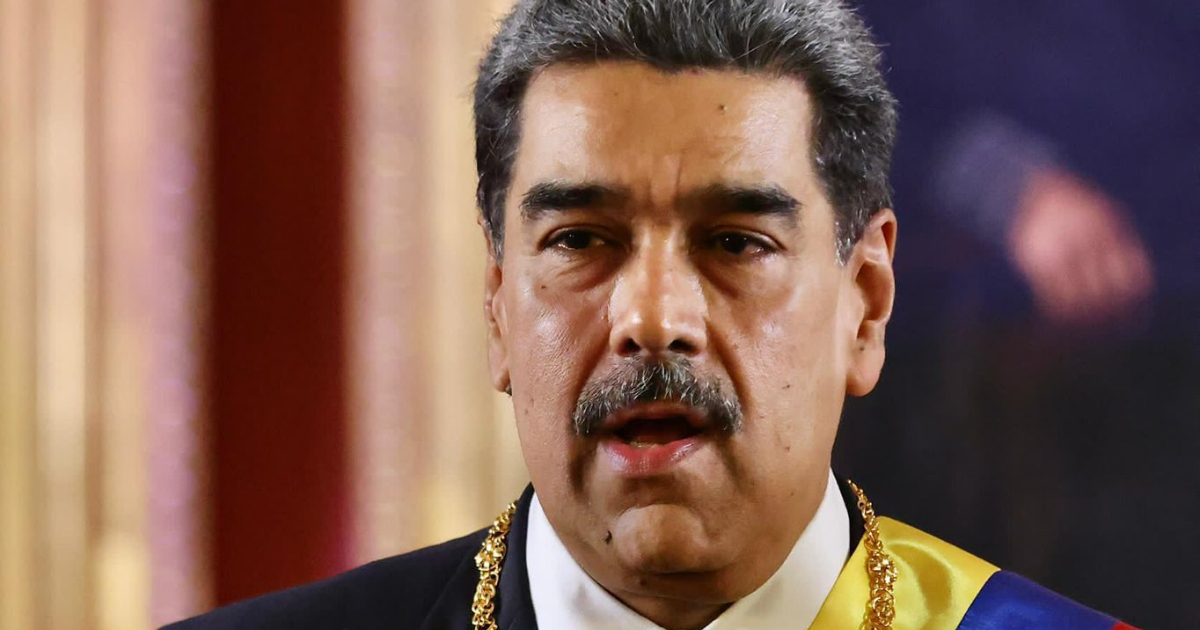The European Union, along with several nations including the United States, openly rejected Nicolás Maduro's presidential inauguration in Venezuela on Friday, labeling it a "desperate attempt to cling to power." Responding to the recent developments in the South American nation, the European Union (EU) has implemented a fresh set of sanctions on 15 individuals accused of undermining democracy, the rule of law, and human rights in Venezuela. This decision follows Maduro's inauguration for a new term without presenting electoral records.
The sanctions target an additional 15 members of Venezuela's National Electoral Council, the judiciary, and security forces. As a result, a total of 69 Venezuelans are now subject to EU sanctions, which include asset freezes and travel bans to the EU. According to the regional bloc's statement, these measures do not impact the Venezuelan populace or economy but are aimed at those accountable for the current crisis.
The sanctions will remain in effect until significant progress is made in human rights, the rule of law, and a democratic transition in Venezuela, the statement emphasizes. The bloc declared that Maduro, who took his oath before Venezuela's Parliament, lacks the legitimacy of a "democratically elected leader."
"Venezuelan authorities missed a crucial opportunity to honor the people's will and ensure a transparent democratic transition with guarantees for all. Consequently, Nicolás Maduro does not possess the legitimacy of a democratically elected president," stated Kaja Kallas, the EU's chief diplomat, on behalf of the Twenty-Seven.
Meanwhile, the United States issued a statement asserting that "the Venezuelan people and the world know the truth: Maduro clearly lost the 2024 presidential election and has no right to claim the presidency." The U.S. government rejects the fraudulent announcement by the National Electoral Council (CNE) declaring Maduro the election winner and does not recognize him as Venezuela's president. Edmundo González Urrutia, the elected president, should be inaugurated, and the democratic transition should commence immediately. The United States is prepared to support a return to democracy in Venezuela, the statement noted.
Additionally, the U.S. increased the reward for information leading to the capture and/or conviction of Nicolás Maduro and his Interior Minister, Diosdado Cabello, offering up to $25 million for each.
The German government also condemned the Chavez regime's power grab, and several Latin American countries have voiced their opposition to what they consider an arbitrary theft of electoral results. Reports and available electoral records indicate that millions of Venezuelans supported Edmundo González Urrutia, who allegedly secured a significant majority at the polls. However, Venezuelan authorities have not released the official disaggregated results, raising doubts about the transparency of the process and leading the EU to refuse recognition of Nicolás Maduro as a legitimate president.
In its statement, the EU also highlighted the intensifying repression against the opposition and civil society since the elections, noting that over 2,500 citizens have been detained, including minors. Although some detainees have been released, the regional bloc insists that none of these individuals should have been imprisoned.
The EU called on Venezuelan authorities to end arbitrary detentions and release all political prisoners unconditionally. The European Union underscored the importance of Venezuela adhering to its international obligations, particularly those outlined in the Vienna Conventions on Diplomatic and Consular Relations. In 2025, the EU will continue providing humanitarian aid to the Venezuelan population, which is still grappling with a severe humanitarian crisis, as explained in the statement. Last year, the European Union allocated nearly 75 million euros to alleviate the needs of the most vulnerable Venezuelans.
FAQs on EU Sanctions and Venezuela
What are the new EU sanctions against Venezuela?
The EU has imposed sanctions on 15 individuals in Venezuela, including members of the National Electoral Council, judiciary, and security forces, for undermining democracy, the rule of law, and human rights.
Why does the EU not recognize Nicolás Maduro as Venezuela's president?
The EU does not recognize Maduro because it believes he was not democratically elected, as electoral processes lacked transparency and legitimacy according to reports.
How is the United States responding to the situation in Venezuela?
The U.S. rejects Maduro's presidency and supports Edmundo González Urrutia. It has increased the reward for information leading to the capture of Maduro and Diosdado Cabello, offering up to $25 million for each.
